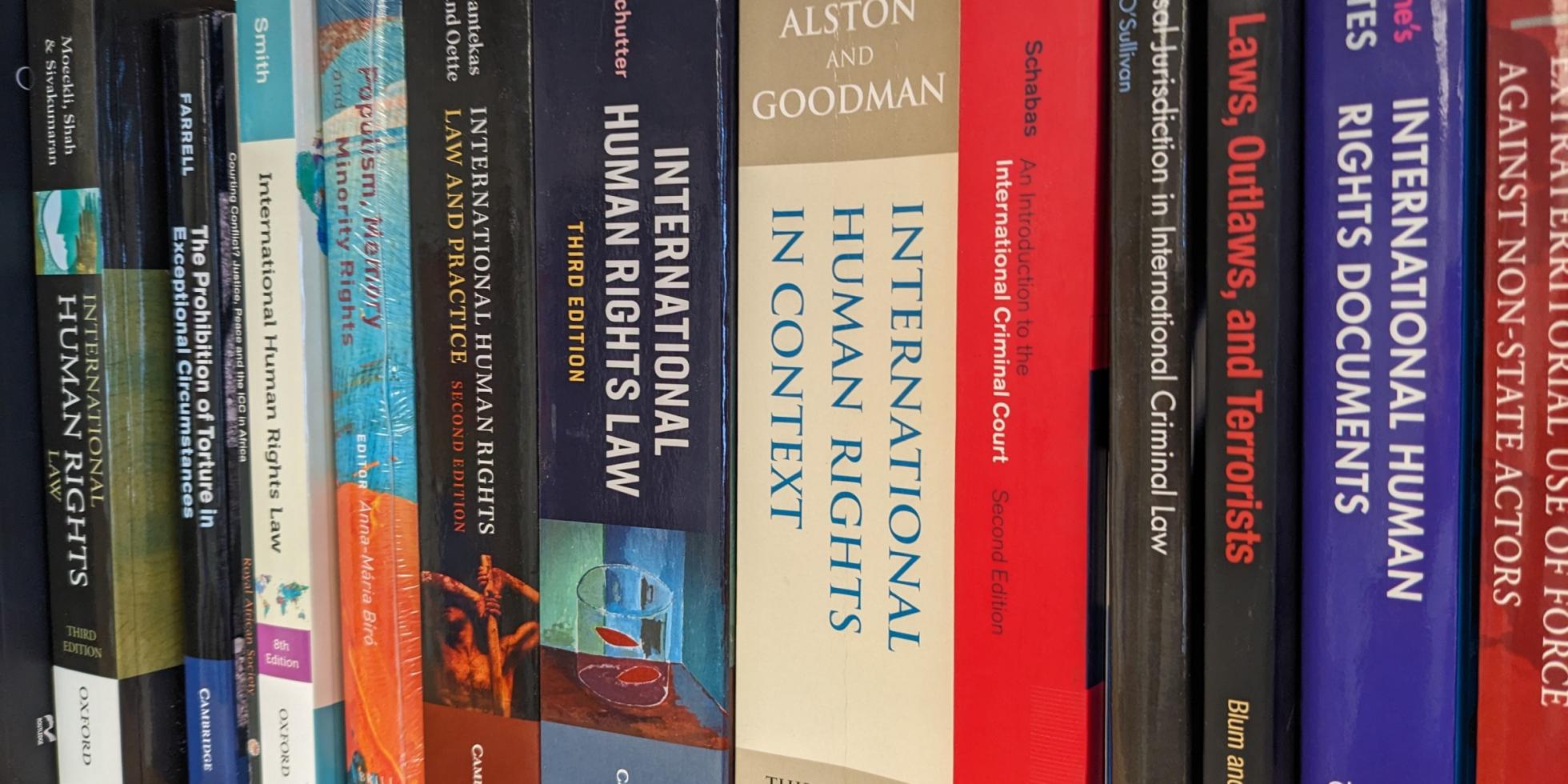The virtual human rights library brings together resources from multiple libraries and information services, both internal and external, to create an online hub dedicated to the study of human rights. This curation is unique in its interdisciplinary concerns and focuses on writings and research from social sciences, humanities, and law.
The virtual library is continually updated with the latest academic research in issue areas, as well as with relevant films, recorded conversations, and other forms of media.
Please Note:
The Virtual Library is usable by all visitors, but the hyperlinks to materials listed are for UChicago community members with a CNet ID and password.
Please direct feedback and suggestions to Kathleen Cavanaugh.
For technical assistance, email pozenhumanrights @ uchicago.edu.
Searchable Database
Click into the dropdowns to select the disciplines, keywords, and media type for your search, and then hit "Apply."
Under the Dome / 穹顶之下
After learning her unborn daughter had developed a tumor in the womb, former China Central Television journalist Chai Jing embarked on a documentary journey believing air pollution to be the cause. Presented through a series of interviews, site visits, and TED...
Undivided Rights: Women of Color Organize for Reproductive Justice. Chicago
Undivided Rights presents a textured understanding of the reproductive rights movement by placing the experiences, priorities, and activism of women of color in the foreground. Using historical research, original organizational case studies, and personal interviews, the authors illuminate how women...
Une si longue lettre
Une si longue lettre est une oeuvre majeure, pour ce qu'elle dit de la condition des femmes. Au coeur de ce roman, la lettre que l'une d'elle, Ramatoulaye, adresse à sa meilleure amie, pendant la réclusion traditionnelle qui suit son...
Une Tempête
A Tempest is Aimé Césaire's anti-colonialist refashioning of Shakespeare. Alongside The Tragedy of King Cristophe and A Season in the Congo, it completes a 'triptych' of plays that examine the effects of colonialism.
Unimaginable Atrocities: Justice, Politics, and Rights at the War Crimes Tribunals
As international criminal courts and tribunals have proliferated and international criminal law is increasingly seen as a key tool for bringing the world’s worst perpetrators to account, the controversies surrounding the international trials of war criminals have grown. War crimes...
Universal Human Rights in Theory and Practice
In the third edition of his classic work, revised extensively and updated to include recent developments on the international scene, Jack Donnelly explains and defends a richly interdisciplinary account of human rights as universal rights. He shows that any conception...
Unspeakable Truths: Transitional Justice and the Challenge of Truth Commissions
In a sweeping review of forty truth commissions, Priscilla Hayner delivers a definitive exploration of the global experience in official truth-seeking after widespread atrocities. When Unspeakable Truths was first published in 2001, it quickly became a classic, helping to define...
Unwanted Beauty: Aesthetic Pleasure in Holocaust Representation
Portrayals of the Holocaust in literature, paintings, and architecture have aroused many ethical debates. How can we admire, much less enjoy, art that deals with such a horrific event? Does finding beauty in the Holocaust amount to a betrayal of...
Utopia's Discontents: Russian émigrés and the Quest for Freedom, 1830s-1930s
In April 1917, Lenin arrived at Petrograd's Finland Station and set foot on Russian soil for the first time in over a decade. For most of the past seventeen years, the Bolshevik leader had lived in exile, moving between Europe's...
Uyghur Nation: Reform and Revolution on the Russia-China Frontier
The meeting of the Russian and Qing empires in the nineteenth century had dramatic consequences for Central Asia’s Muslim communities. Along this frontier, a new political space emerged, shaped by competing imperial and spiritual loyalties, cross-border economic and social ties...

